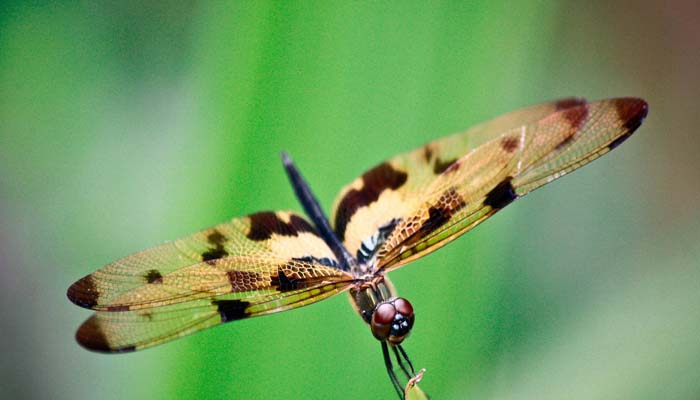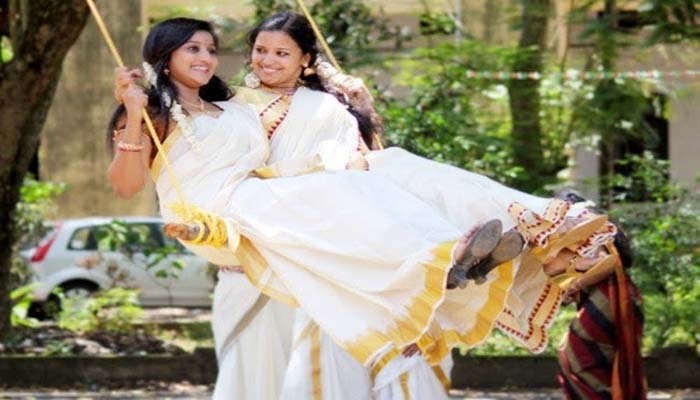
That time of the year again with the air of festivity and celebration, a mad shopping spree, the roads and narrow walkways are clogged this is the dizzy spirit of Onam, the Malayali’s most important festival. The excitement of the festival draws them into its vortex. Those who are spaced out are left thinking when Onam changed.
For some this was the harvest festival when the dark monsoon clouds had moved away, the harvest was done, the granaries were full and after the toil, it was time to celebrate. Onam is not just nostalgic memories of a primitive Kerala, rich and green, serene and clean, but also a legend of an ideal society.

Everything has changed. The fields have fast disappeared; the granaries in those old tharavads have been modified into cosy rooms. But still, the spirit of Onam and the celebrations continue.
The festival lost numerous historical records. It is no longer what it was in William Logan’s Malabar Manual or in Mankudi Maruthanar’s 200 A.D. work Maduraikanchi or A. Sreedhara Menon’s volumes on Kerala’s history.

Apart from the now very popular King Mahabali legend certain historians believe that the celebration of Onam was connected with Cheraman Perumal’s departure from Kerala.
This last Perumal of the Chera kingdom decided to leave, entrusting the rule of his kingdom to local rulers. The people gave the Perumal a grand send off, and this is believed to be continued every year as Onam.
The harvest connect is very obvious. In the past, Kerala was largely agrarian with rice as the main crop. Two or three crops of rice were cultivated and harvest days were festive days for the farmers. Onam was such a harvest festival.

Records of certain temples indicate that Onam festivities took place in and around the temples. An ancient record from the Sree Vallabha Temple in Thiruvattuvai or present day Thiruvalla that dates back to 861 A.D. mentions customs and traditions followed during Onam.
History, myths and legends, mostly based on remembrances, undergo modifications from time to time. And today, all this is part of nostalgia.
Onam is now just another excuse to let your hair down; an excuse cleverly marketed. With the rise of nuclear families and small apartments becoming the order of the day, Onam, like any festival, has turned into a closed, private affair in the cities. And the scene is not very different in the villages too where for at least ten days there was much fun, festivities, unique folk art performances and traditional games, many of which have become extinct now.

Those day when family members gathered together for feasting, gathering flowers, creating the floral carpets and playing on the swing, with the women trying out their steps in Kaikottikali are gone long away. The tradition of presenting the Onakodi or Onappudava is still prevalent. The only difference being that instead of the traditional puliyilakkara mundu we have readymade designer wear.
Some of the folk art forms that used to be an integral part of Onam are also missing. The Vyravikkal, a small group of Muslim artistes, used to visit houses days before Onam and play the daf, the Persian frame drum. They were given money, rice or grocery. This was popular in parts of Ernakulam district. In the north of Kerala, there used to be the Onavedan. Members of the Peruvannan community used to roam the villages with painted faces and decorated head gear, decked in ornaments and playing a small drum singing the lines “Maveli naadu vaanidum kaalam”

Onapottan, mostly in Kannur, Kasargod and Palakkad districts, visited houses with his face painted in red, wearing a crown, carrying a bell in one hand and an umbrella made out of palm leaves in the other. He was accompanied by two others who played the chenda and illathalam. Both these forms are seen rarely these days.
Poems and stories refer extensively to romantic concepts like Ona nilavu, seen in the clear skies with the monsoon washing the land green and clean; the Onathumpi that is seen in the fields and the Onapakshi or the migratory Yellow Oriole that sings in the spirit of Onam.
Onam has certainly changed but as they say, go with the flow or live in rewinding all those golden days

Post Your Comments